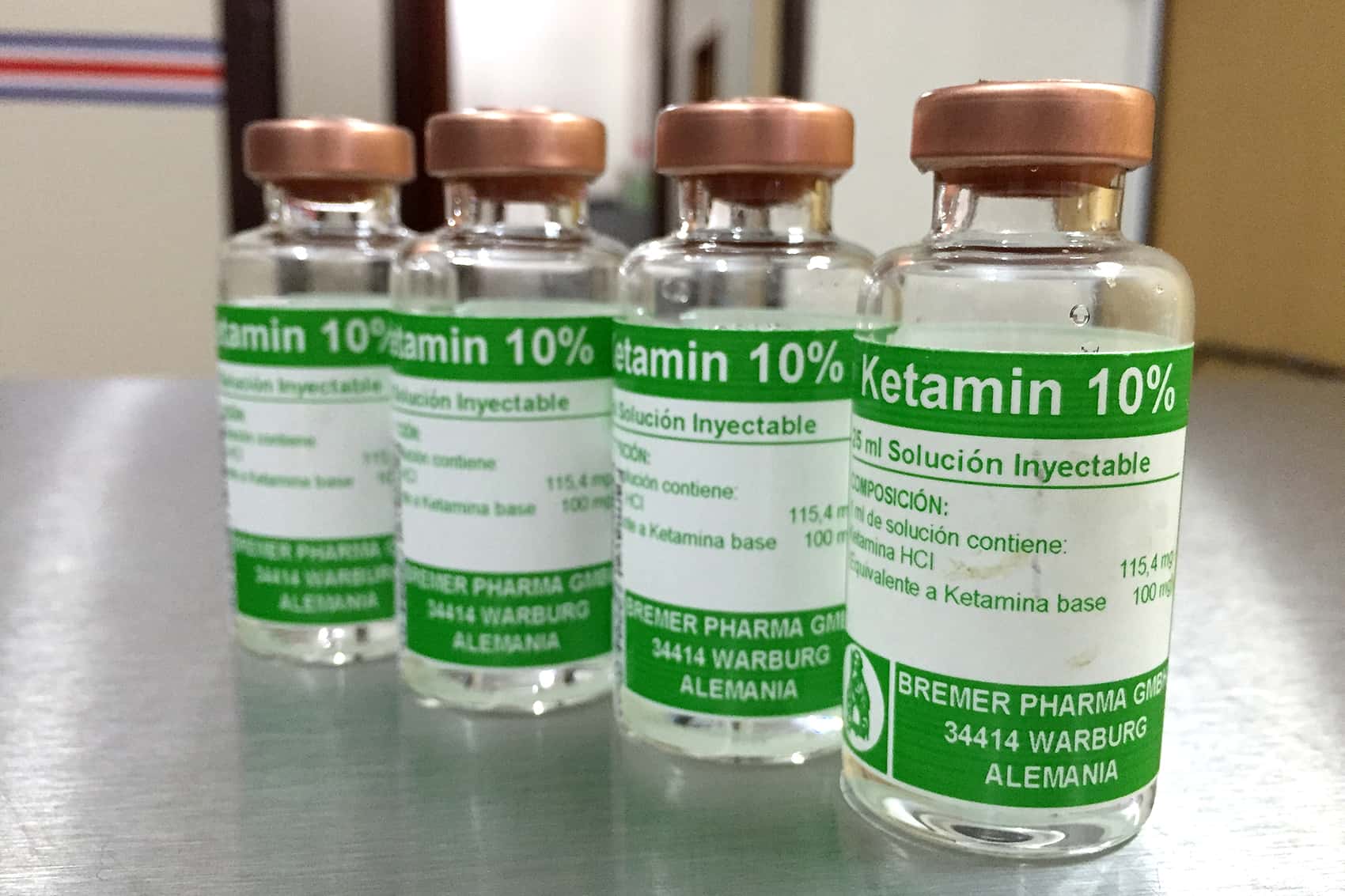Health Ministry officials confirmed Wednesday that they will include ketamine in the list of controlled substances in Costa Rica. The drug is primarily an anaesthetic for humans and animals, but also is used as a recreational drug and as a so-called date rape drug. It’s commonly known as “Special K” and, in Costa Rica, as “Keta” or “Vitamin K.”
The ministry’s public health director William Barrantes said listing ketamine will allow authorities to enforce stricter controls over its sale. Listing also will make it easier to confiscate the drug from illegal distributors.
Ana Salas Herrera, director of the National Poison Control Center, noted that ketamine can only be administered by medical or veterinary professionals, and it requires a special prescription. “However smuggling and street vending are making it easier to get,” she said.
In the past year, National Police reported at least two seizures of ketamine bottles from street vendors in San José and Alajuela, while Border Police officers seized more than 300 bottles entering from Nicaragua earlier this year.
Salas said authorities have handled 10 cases of people intoxicated by ketamine in the past three months. Most of the patients were young girls between the age of 10 and 14. There were also cases of adult women and men between age 14 and 45.
The reported cases mainly involved people who attended private parties or were likely intoxicated at bars in San José and Alajuela. There were also cases in rural areas of San Carlos and Limón.
“We received calls from parents saying they found their daughter unconscious in the doorway after attending a party or a bar. We even treated a case of a 10-year-old girl who got very sick after drinking a cold beverage during a recess at school, and test results were positive for ketamine,” Salas said.
She also recalled a recent case of a 45-year-old man who called the Poison Control Center hotline saying he was with a group of friends at a bar and the next thing he remembered was waking up the next morning on a sidewalk without any money or other personal belongings.
The biggest problem is that ketamine produces anterograde amnesia, Salas said, meaning people do not retain recent events, “therefore victims often cannot remember who gave them the drink.”
Though 10 cases may not seem like much, Salas said, the number represents a significant increase over previous years.
“These cases only represent those reported at our center in the past three months, but we know usage data in general is misreported because some people search for help from private doctors or at emergency rooms, Salas said. “At those places they mostly treat the symptoms but usually do not perform lab tests for drug detection,” she added.
Andrés Rodríguez Pérez, director of information and statistics at the Costa Rican Drug Control Institute (ICD), said the institute treated 19 people who requested medical assistance for ketamine addiction in 2014.
During the first half of 2014, the ICD conducted an investigation to determine the relationship between crime and the consumption of both licit and illicit drugs among inmates of the Zurquí Juvenile Detention Center. The study found that 41.2 percent of inmates surveyed had recently used ketamine.
Another ICD study among high school students in 2012 found that 11.7 percent of respondents reported having used ketamine at least once in their lifetime, Rodríguez said.
Recreational drug and criminal weapon
Frequent users of ketamine as a recreational drug mostly use the powder form, while those who use it for criminal purposes generally prefer its liquid form. Liquid ketamine is easier to mix with drinks. The drug can also be snorted, smoked along with marijuana or tobacco, injected or compressed into pills.
Because of its anaesthetic effect, criminals often use it to render victims unconscious in order to rob or rape them, according to the Alcoholism and Drug Abuse Institute (IAFA).
The liquid form is undetectable by the victim, as it does not affect a drink’s color, odor or taste. Usually the first symptoms are visual and auditory hallucinations that last from 45 to 90 min. Victims then experience numbness, vomiting and usually fall unconscious, according to IAFA.
The hallucination period usually is followed by general disorientation, which affects senses and motor coordination. These effects can persist for periods up to 24 hours.
Overdose causes the person to experience a close-to-death sensation commonly known as the “K-hole,” during which one can fall into a catatonic state and even die.
Salas said people who suspect they might have been poisoned with ketamine should immediately call the emergency line 9-1-1, the National Poison Control Center’s hotline 2223-1028 (bilingual staff available) or go to the nearest medical center.







